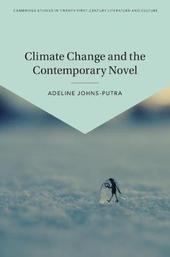
|
Climate Change and the Contemporary Novel
Hardback
Main Details
Description
Climate change is becoming a major theme in the contemporary novel, as authors reflect concerns in wider society. Given the urgency and enormity of the problem, can literature (and the emotional response it provokes) play a role in answering the complex ethical issues that arise because of climate change? This book shows that conventional fictional techniques should not be disregarded as inadequate to the demands of climate change; rather, fiction has the potential to challenge us, emotionally and ethically, to reconsider our relationship to the future. Adeline Johns-Putra focuses on the dominant theme of intergenerational ethics in the contemporary novel: that is, the idea of our obligation to future generations as a basis for environmental action. Rather than simply framing parenthood and posterity in sentimental terms, the climate change novel uses their emotional appeal to critique their anthropocentricism and identity politics, offering radical alternatives instead.
Author Biography
Adeline Johns-Putra is Reader in English Literature at the School of Literature and Languages, University of Surrey. She is the author of Heroes and Housewives: Women's Epic Poetry and Domestic Ideology in the Romantic Age (2001) and The History of the Epic (2006). She is also the editor of Process: Landscape and Text (2010) and Literature and Sustainability: Concept, Text and Culture (2017).
Reviews'... nuanced, solidly researched, well-argued, and methodically sound - indeed, methodologically innovative in its well-developed and sustained eudaimonistic framework ... [Climate Change And The Contemporary Novel] will make significant contributions to the fields of environmental ethics, environmental literary criticism, ecofeminism, narrative ethics, and climate change studies, perhaps most importantly in showing these fields the benefits of cross-dialogue.' Cheryl Lousley, University of Edinburgh 'Climate change is not simply one more topic to be taken up by novelists. As Johns-Putra argues so powerfully, climate change at once demands new modes of thinking about time and agency, at the same time as it brings to the fore what has always marked the novel: the problem of finding meaning in the various ends (and endings) that direct and interrupt life. This book is essential and enjoyable reading for anyone interested in how we might imagine the world in the wake of the Anthropocene.' Claire Colebrook, Pennsylvania State University
|